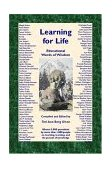|
||||||||
National ParksDo you like nature and science, or history and culture? Are you a student doing research for a term paper, a teacher looking for new and exciting ideas for this year’s curriculum, or a parent looking for something fun to do with your family? With nearly four hundred National Parks across the country, the possibilities are endless. From glaciers to geysers, from petrified wood to dinosaur bones, the parks have it all including volcanoes, caves, canyons, mountains, forests, rivers, lakes, islands, beaches, sand dunes, and Indian ruins. Places like the Grand Canyon, Statue of Liberty, and Gettysburg are popular destinations, but so are hundreds of lesser known yet equally meaningful gems. Scottish-American naturalist John Muir lobbied for the preservation of natural lands during the 1860’s. On March 1, 1872, President Grant signed a bill to create Yellowstone, the first national park in the world. By the turn of the century, Congress had voted to create a few more national parks. The number of national parks grew rapidly after Theodore Roosevelt, a conservationist, became President in 1901. In 1916, Congress established the National Park Service within the Department of the Interior. Many more places of national interest were considered for preservation under the Historic Sites Act of 1935. The goal of the National Park Service is to preserve, protect, and share America’s heritage, natural wonders, and the legacies of this land. National parks provide plentiful opportunities for hiking, sightseeing, photography, wildlife watching, etc. However, they are more than just interesting recreational areas. They can be considered the greatest classroom in the world, the largest scientific laboratory, as well as a living history textbook. Within the parks there are museums, exhibits, and guides that illustrate, explain, and interpret what visitors are seeing. A superintendent is in charge of each national park. National parks hire naturalists, foresters, biologists, ecologists, geologists, archeologists and historians to study the park lands. They also employ natural resource managers, landscape architects, land planners and engineers. Park rangers and guides help people explore and enjoy the parks. Rangers also protect the wild animals and plants while enforcing the park rules. Since the 1960’s, kids have been able to become young park rangers through the Junior Ranger program. Almost every national park has a Junior Ranger program that provides age-appropriate and park-specific self-guided activities for children ages 6-14. Junior Rangers learn about responsibility, nature conservation, and the importance of preserving our national treasures. They can do these with their families, Cub Scout troop, church Sunday school group, or any group that might go on a field trip to a national park. Ask about it at a park’s Visitor Center. If you can’t physically visit a park, there is the Web Ranger program. To become a Web Ranger, children complete a series of activities on their computer at home or in a library. This allows children from all over the country to become Junior Rangers even if they can’t go to a national park themselves. It has also shown great potential to enrich and augment the park experience for children who do visit by allowing them to prepare for their visit ahead of time, and to extend their visit when they return home. Groups of children sometimes work with the National Park Service and other agencies to clean up vacant lots and make neighborhood recreation areas. Perhaps you and your friends could start a similar project in your neighborhood. You won’t be making a national park, but you would be helping your community. At home you can make your own a collection of natural treasures such as: seashells, rocks, crystals, geodes, leaves, pinecones, seeds, twigs, etc. Keep them in a shoe box and examine these miniature wonders using a magnifying glass. Additional Resources The Little Park, by Dale Fife. (Neighborhood children find a way to save the last vacant lot in town as a wildlife preserve.) www.nationalparks.org/KidsPrograms/JuniorRangerPrograms.shtml (The NPS Junior Ranger Program.) www.nps.gov/learn (Curriculum and field trip planning, activities and games, a guide to the Web Ranger program, and other educational media created by the NPS.) National Park Week is an annual Presidentially proclaimed week in April for celebration and recognition of National Parks. National Parks are living examples of the best this Nation has to offer - our magnificent natural landscapes and our varied yet interrelated heritage. Parks can provide recreational experiences, opportunities to learn and grow, and places of quiet refuge.
This year's National Park Week is April 19-27, 2008. Be sure to take a day to visit a national park near you!
These pages are a continuous work in progress.
|
|
















 L
L K
K